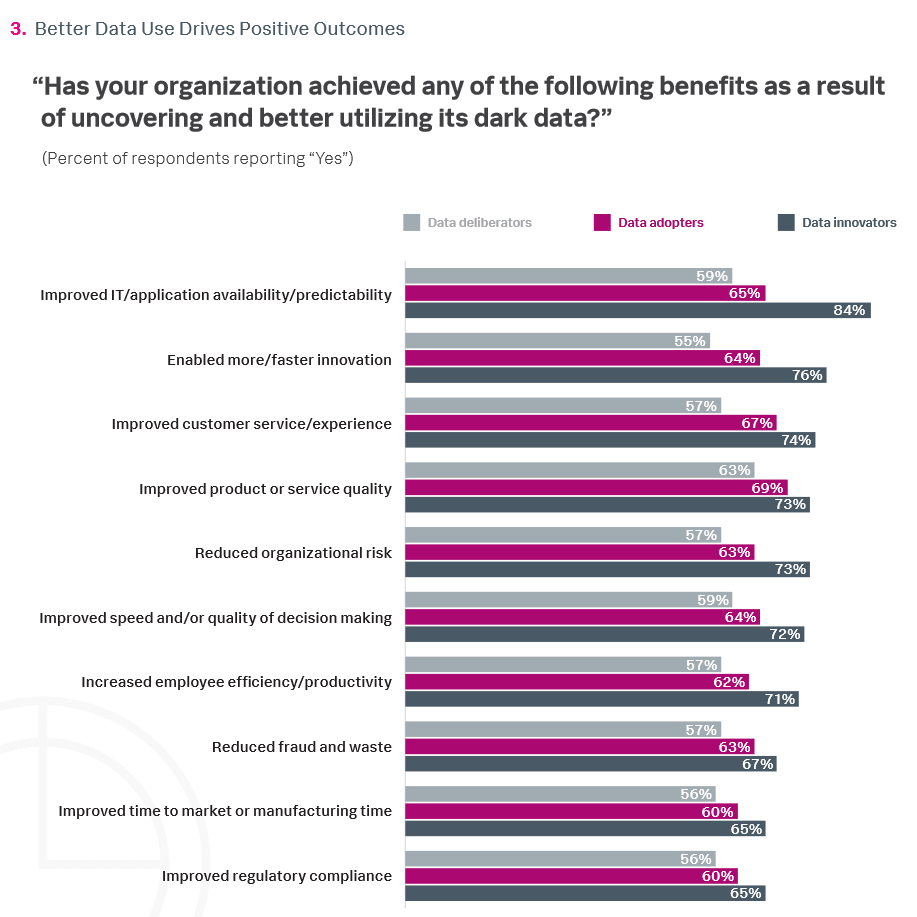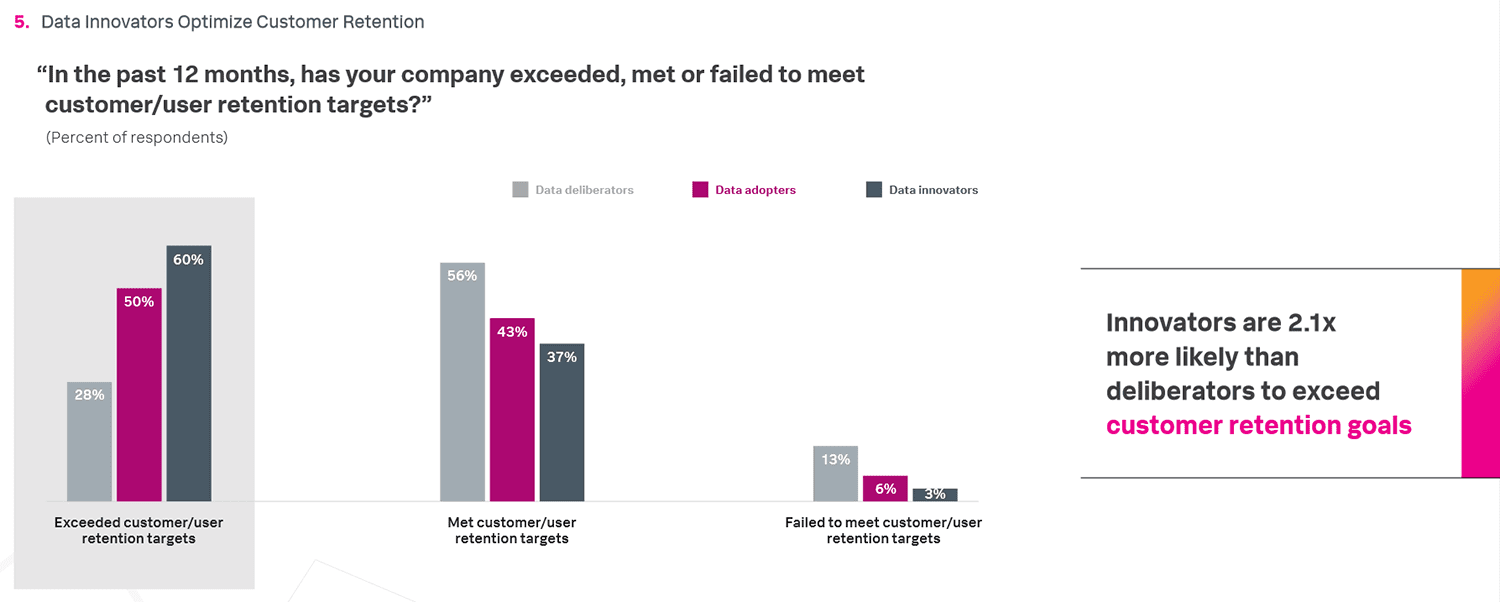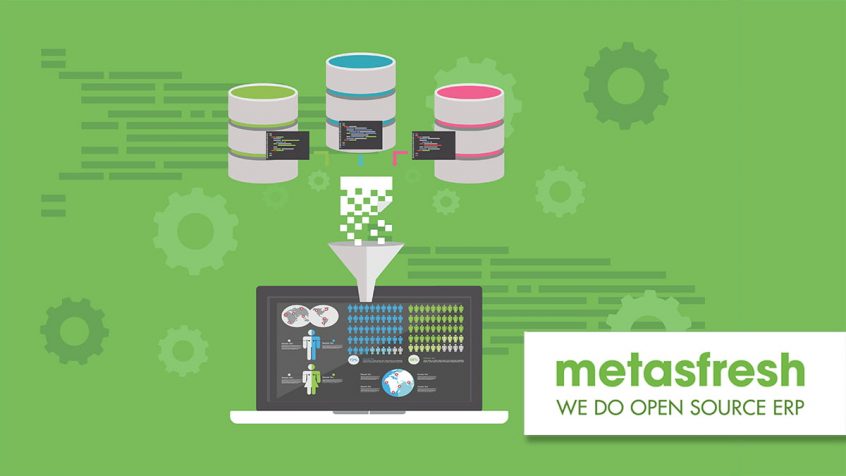Share this Post
Data. It’s the word on every business leader’s lips. It’s been described as the new oil or new gold for business. Why? Because, in the digital economy, the more customer and business data an organisation is able to process and analyse, the more insights it can gain into customer trends and business operations — and thereby make better decisions that drive efficiency, competitiveness, and profitability. However, it’s not simply having data that makes it a competitive asset — it’s what organisations do with their data that counts. And this is where the concept of data maturity comes in.
What Is Data Maturity?
In simple terms, data maturity can be thought of as the extent to which an organisation is able to utilise its data to extract meaningful insights that drive decision-making.
But what do we mean by data? In a business context, data is all information the organisation collects. It’s information about your customers — who they are, what they buy, what services they utilise, what marketing materials they engage with, etc., etc., etc. It’s financial information — business costs, payroll, revenue, profits, etc., etc., etc. It’s staff information, supply chain information — information contained in your business applications, such as an ERP that collects and centralises your accounting, operations, HR, inventory, product development and planning data in one business management system.
However, if all this data isn’t properly arranged, then data is all it is — a bunch of numbers, names, and text lying around. Indeed, data maturity is not measured in how much data a business collects — but in how well it processes, analyses and utilises that data to drive profitable decisions. As such, the more an organisation values its data, and the more sophisticated the techniques and technologies it uses to process and analyse it, the more data mature the organisation is.
Why Data Maturity Matters
Data maturity is important. The more data mature the organisation, the better equipped it is to identify opportunities and threats. For example, through leveraging the power of predictive and prescriptive analytics, a data mature organisation is able to not only anticipate what will happen in the future, but what actions to take. It can, for instance, accurately predict how many sales of which products it’s likely to make in a given month — and thereby which customers to target with which promotions. Elsewhere in the organisation, it can also predict which candidate will be the best fit for a new job opening, or which supplier to select for a particular line of parts or products and how many to order to fulfil a predictable demand.
On the other side of the coin, a data mature organisation is also able to foresee potential threats or challenges — such as which months of the year sales are likely to decrease, or when an employee is at risk of leaving the organisation. With these types of insights, the organisation can then take preventative action to steer events in its favour.
A recent global study by Splunk — What Is Your Data Really Worth? — which explores the correlation between an organisation’s use of data and its business success, confirms that data mature organisations do indeed perform better than their less mature competitors. The study found that by making better use of data, leading organisations surveyed had materially increased revenue and reduced operational costs, boosting profitability by an average of 12.5% of their total gross profit.
In addition to analysing how organisations are saving money and growing revenue with data, the study assessed respondents’ different stages of data maturity, based on criteria such as the prevalence of modern analytics tools and skill sets and the effectiveness of the organisation at operationalising its data. Respondents were correspondingly grouped into three data maturity categories:
- Data Deliberators — Organisations in the early stages of their data strategy implementation
- Data Adopter — Organisations making good use of their data, but still have room for improvement
- Data Innovator — Organisations which place the strongest strategic emphasis on data and have an advanced strategy in place to extract business value
One of the key capabilities of data mature organisations is their ability to find and utilise dark data — i.e., “unquantified, siloed and untagged data sets that are a side effect of sprawling systems and missing metadata,” as the report puts it. The study finds that organisations with a more sophisticated approach to finding data and putting it to use outperform peers struggling with dark data across all lines of questioning.

Smarter Data Use Improves Bottom-Line Outcomes —Source: splunk.com
All organisations reported better business outcomes from better data use, but Data Innovators achieved considerably higher key business and economic benefits. Relative to the Data Deliberators surveyed, Data Innovators had added 83% more revenue to their top line and 66% more profit to their bottom line over the previous twelve months. The study also found Data Innovators to be more likely to have a “data-obsessed company culture” — employing more technologies for data analysis and acting on their data more frequently.
In addition, the study found that 97% of Data Innovators had met or exceeded their customer retention targets, with the majority (60%) having actually outstripped their goals. Meanwhile, 93% felt they tended to make better, faster decisions than their competitors, and 91% believed their organisation was in a strong position to compete and succeed in their respective markets over the next few years.

Data Innovators Delight Customers —Source: splunk.com
Assessing Your Organisation’s Data Maturity
It’s clear from Splunk’s study that a more advanced data strategy is tied to improved top- and bottom-line outcomes. However, across industries and countries, less than 11% of organisations had reached the stage of Data Innovator, according to the study, demonstrating that nearly 90% have room for improvement.
The first step for any organisation looking to advance their use of data is to recognise where they stand today in their journey towards data maturity so they can plan the next steps. To do this, they should conduct a data maturity assessment. This will determine how well equipped the organisation is for data projects — what technologies the organisation may need to invest in to improve analytics capabilities and identify use cases, the current state of data governance within the organisation, what the data roles are, whether there is a need to hire new employees or train the existing workforce, etc.
Measuring your organisation’s data maturity brings several key advantages. For starters, knowledge of the status quo reveals where there are gaps that must be filled in order to successfully implement data-driven projects. In addition, it enables your organisation to create an individualised target vision of what it needs to achieve on its road to data maturity, so you can develop an individualised data strategy, prioritising the most important projects. Finally, the organisation can determine precisely what the next steps are to begin implementing the first data-driven projects, revealing concrete action to be taken over the next month, two months, six months, and so on.
There are numerous data maturity assessment tools available that you can use to do this — for example, Splunk provides a web-based data maturity self-assessment calculator, while Data Orchard provides a data maturity assessment tool for the non-profit sector.
No matter where your organisation is on its journey towards data maturity, however, the first thing it needs is easy access to all business data. This is so much easier when it is centralised in one place — and this is precisely where the value of a modern, powerful ERP system like metasfresh is found.
metasfresh ERP is an all-seeing, all-knowing system that integrates an organisation’s wide-spread business functions — from product development to supply chain management, HR, finance, sales and marketing — into one overarching information system. Only by compiling an organisation’s entire hoard of multi-departmental business data in one place can meaningful data projects begin to happen. metasfresh is designed from the ground up to process mass data from across the organisation in order to help businesses make informed decisions and identify patterns that can be used for predicting future trends and prescribing future action — the key capabilities of data mature organisations.
Talk to us here at metasfresh. Since 2006, we have been developing our metasfresh ERP software non-stop with open source components under the open source licenses GPLv2 and GPLv3. Our mission is to enable each and every company to access a powerful ERP system fuelled by data analytics to drive digital transformation and corporate growth. Get in touch today for more information and insights.
Share this Post



